Now, the Bishop of Ely: In my last post I quoted a bit about Hayley Wood from a survey of the Bishop's lands done in 1356, when he was wanted for murder. I said I needed to find out more.
The first thing to realise is that back in the fourteenth century the Fens surrounding the Isle of Ely were a wild and unruly place. The King had no power in this watery wilderness, which formed a hideaway for all kinds of outlaws and vagabonds. He relied on the Bishops of Ely to maintain some kind of order and they "ruled with a crozier of iron".
In the early thirteen-fifties some of the Bishop's men burned down some houses which it turned out were owned by one Blanche of Lancaster. Blanche was a child at the time but had inherited her father's vast wealth. King Edward III had plans for Blanche to marry his third son, John, so burning down her houses was not a bright move. The King rebuked the Bishop and forced him to pay damages.
Soon after this the Bishop, Thomas de Lisle, had one of Blanche's servants murdered and the King retaliated by seizing all the Bishop's possessions and making him beg forgiveness. The survey of his properties was to enable the king to be sure he'd confiscated everything.
Blanche went on to marry the king's son, who is known to history as John of Gaunt, when she was just fourteen. She bore him seven children, three of whom survived infancy, including one who later became King Henry IV. She died from the Black Death when she was only in her early twenties.

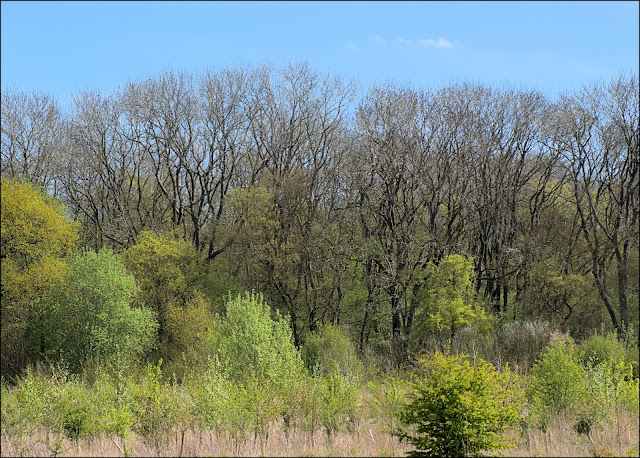
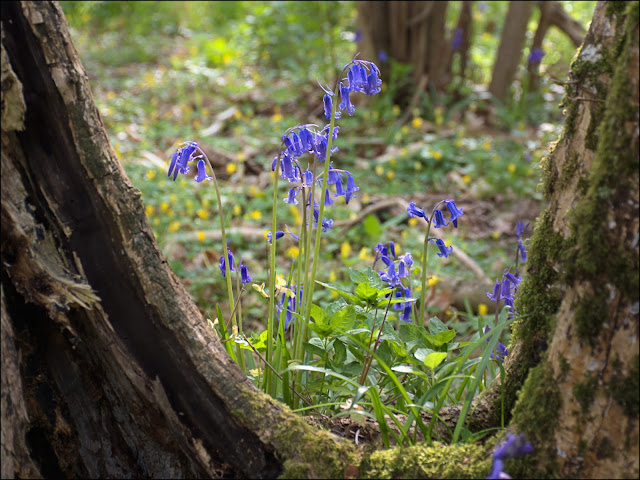
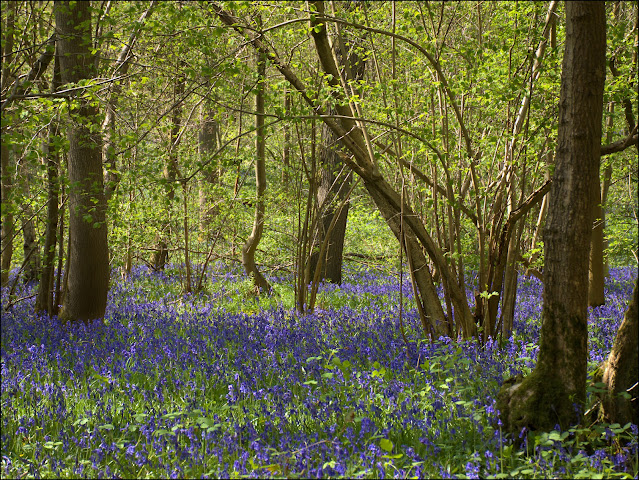
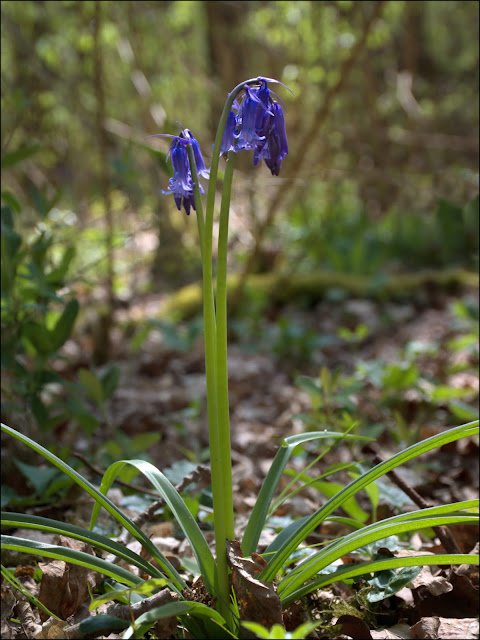


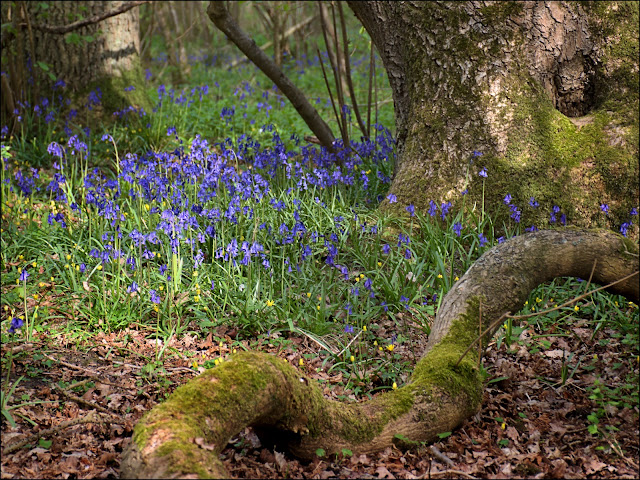


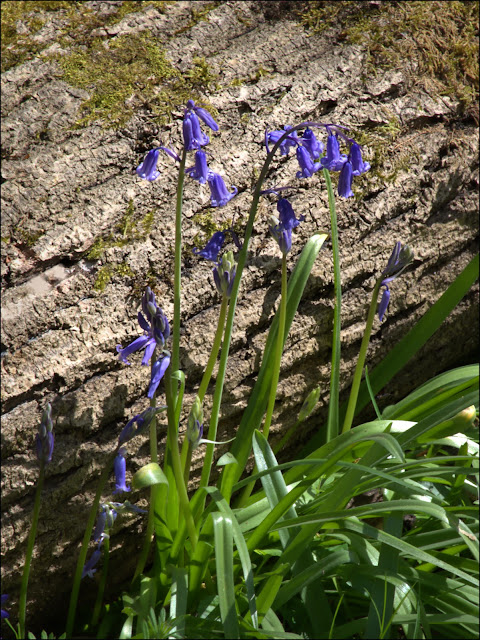


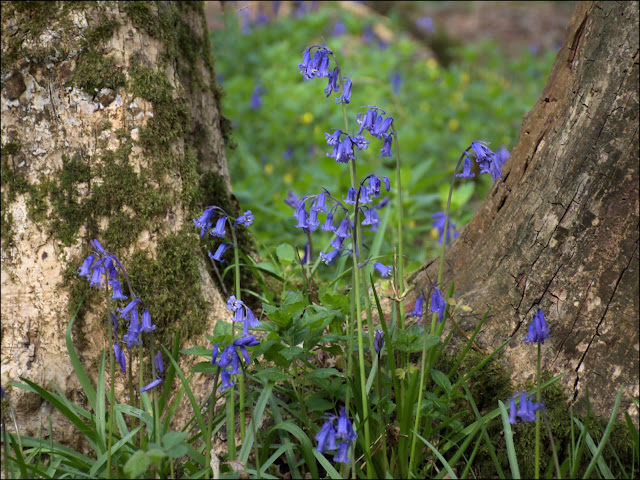
The bluebell woods are beautiful especially with the blue skies to match. What a fascinating story about Blanche. Her life was short but she must have experienced so much suffering during that time. I hope John was a good husband to her.
ReplyDeleteHer story is the stuff of historical romance novels. We know that when she died John went into an extended period of mourning and had a magnificent tomb built for her. Though he married twice more, it is with Blanche that he chose to be buried
Deletemerci pour ces images de tapis de fleurs bleues * le parcours de Blanche de Lancaster a fait écrire beaucoup de récits sur sa vie qui fut plutôt brève mais tellement influente sur l'avenir * son prénom "Blanche" m'a toujours intriguée
ReplyDeleteShe was apparently named after her great grandmother, Blanche of Artois, Queen of Navarre.
DeleteHi John - gorgeous photos - and yes Blanche and John of Gaunt ... historical romance. So pleased to read the history ... cheers Hilary
ReplyDeleteI would be singing (badly) if I could visit that beautiful space.
ReplyDeleteAnd thank you for the research you undertook to fill in the gaps after that last post. She had seven children and was still only in her early twenties when she died? Shudder.
I think that for me the quintessential scene of an English woodland in spring is the carpet of Bluebells. I would imagine the sense of wonder imposes itself on you anew each year. It truly is a memorable sight and with a backdrop of bird song and gentle breezes must be quite magical.
ReplyDeleteBeautiful purple flowers!
ReplyDeletePoor Blanche. I guess if you didn’t marry young and have lots of kids, your chances of having an heir were slim to none.
ReplyDeleteThe individual plant is perfection and in the woodland views are pure spring.
What a wonderful world we live in...where bluebells just sprout up everywhere, turning a carpet that was snowy just a while ago into a paintbrush of blues and greens! Thanks for the history also...I wonder if there were bluebells in their times.
ReplyDeleteWe will have Virginia bluebells here soon but not yet. I look forward to it each year. Your photos are so lovely.
ReplyDeleteBlanche had a lot of living for her short life but I suppose that was typical for the times.
Bluebell season is so beautiful there. A blanket of blue winding through the woods.
ReplyDeleteI remember reading a novel about John of Gaunt's third wife Katherine Swynford, many years ago. The bluebells are lovely, I think ours here are a little behind yours, I'm looking forward to seeing them. Your photos are wonderful:)
ReplyDeleteThose bluebell fields are amazing! I just love vast areas of wildflowers.
ReplyDeleteBeautiful bluebells! I posted some today too. :)
ReplyDeleteThe bluebells are wonderful to see.
ReplyDeleteBeautiful bluebell woods! I can't imagine a fourteen old girl who was already married, had seven children and died in her early twenties. It doesn't sound like a love story to me, more like a story about suffering... Poor Blanche!
ReplyDeleteA dark story.
ReplyDeleteThe bluebells are enchanting.
What lovely woods with that splash of blue carpeting the ground. Nothing like that here.
ReplyDeleteThanks for the bit of English history. Never have been able to keep all the kings straight.
Your bluebell woods are just incredible, something we just don't have here.
ReplyDeleteEvery year I look forward to see Bluebell woods on this blog. I love British Bluebells, though Spanish Bluebells in the small patch of my garden are also lovely.
ReplyDeleteYoko
Certainly an enchanted wood. Deep blue flowers are a favorite of mine.
ReplyDeleteThe bluebells are so beautiful Another of those subjects that make me wish I were a painter.
ReplyDeleteThis history that you gave made me glad I did not live back then. Not that I am not already thankful for that.
If I walked into the woods and saw a carpet of gorgeous blue flowers, I would surely think I was in heaven.
ReplyDelete